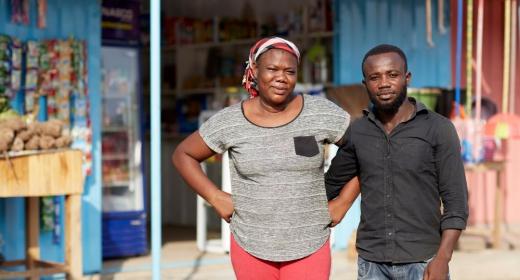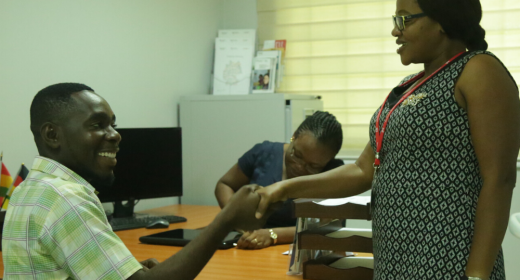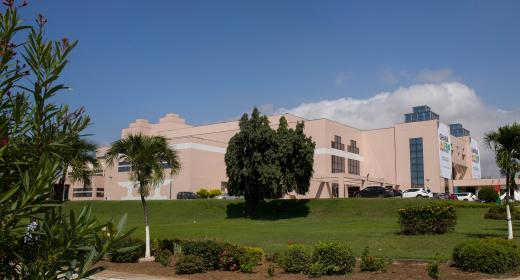Kwaku Yeboah is a counsellor at the Ghanaian-European Centre for Jobs, Migration and Development (GEC) in Accra. In this interview, he talks about how the GEC team supports families who have returned to Ghana.
What services do you offer for returnees?
We provide general counselling, support people to reintegrate into everyday life in the country, advise them on their career choices and arrange jobs. Through our services, we support the Ghanaian Ministry of Employment and Labour Relations in addressing the issue of migration and employment.
You advise not only individual returnees, but also families who have returned. What is your particular focus?
Family returnees are people who do not come back to Ghana alone, but with a partner and/or children. Therefore, the cases of family returnees are always special because you have to take care of the needs of a whole family, not just one person.



